This article was co-authored by Lisa B. Kift, MFT. Lisa B. Kift is a Licensed Marriage and Family Therapist (MFT) for California Online Therapy and Counseling and the Founder of Love and Life Toolbox, which offers tools for emotional health and relationships. With over 15 years of experience, Lisa specializes in family of origin work and relationship issues. In addition to being licensed with the California Board of Behavioral Sciences, Lisa has a Masters of Counseling Psychology from National University. She offers individual and couples counseling online for California residents or face-to-face in Larkspur, Marin County, CA. Lisa is a frequent consultant for the media and has written for news and other online resources such as CNN, HuffingtonPost, Shape, and MensHealth.
There are 15 references cited in this article, which can be found at the bottom of the page.
This article has been viewed 34,047 times.
Sometimes, the day doesn’t go your way and you end up feeling pretty low. It’s easy to let yourself wallow or be sad and upset, but rather than dwelling on the bad day you’ve had, there are ways to recover and make yourself feel better, even if your day was pretty terrible.
Steps
Distracting Yourself From the Day’s Troubles
-
1Give yourself a specific task or chore. Maybe there’s a certain chore you’ve been putting off for a while, like that stack of laundry in the closet, or maybe there are some dishes in the sink that need washing. Give yourself a specific task and focus on it while you do it.
- Try playing music while you clean or work on a task. This will give you something to listen to and focus on while you work, rather than letting your thoughts wander back to what was bothering you initially.
- Cleaning and keeping things organized can actually improve your overall mental health, with some added physical health benefits as well. Getting rid of clutter and messes can help reduce stress, which is something important to do when you’ve already had a bad day.[1] ref>http://www.shape.com/lifestyle/mind-and-body/how-cleaning-and-organizing-can-improve-your-physical-and-mental-health</ref>
-
2Leave your work at work. Many people have the habit of bringing the stresses and problems of work home with them each day. One way to help cheer yourself up after a bad day, especially if work was the cause, is to leave those stresses and irritants behind when you leave the workplace.
- Be present in the moment. Rather than focusing or dwelling on things that happened at work, let them go with a few deep breaths and center yourself in the current moment.[2] Acknowledge that you are letting go of those problems, and that you will deal with them when you return to work.
- Use your commute home as a way to disconnect from work. Rather than just going about your usual way, take care to notice things you might not normally notice, like the scenery on your commute, the weather, or the sunset. Acknowledge the outside world on the way home rather than getting trapped inside your head and dwelling.
Advertisement -
3Get out of the house. Run an errand, go for a walk, take the dog out, or even take a drive. Being outdoors is especially helpful when trying to boost a bad mood, so pick something outside to do, if the weather is appropriate.[3]
- It can be tempting to just stay in the house and wallow in your bad mood after a bad day, but forcing yourself to leave that temptation behind can help you beat that mood. Go out, be around people, and distract yourself with things to do and accomplish.
-
4Take a nap, or go to bed early. When you were a kid, your parents probably put you to bed when you got cranky. It’s not that different once you’re grown up. Getting more sleep can help improve your mood.[4]
- When you don’t get enough rest, you might notice that you’re more irritable or quick to get upset over small things. Lack of sleep may have even contributed to the bad day you had. Taking a short nap or opting to go to bed a little earlier than usual might help you balance back out and get the rest your body needs to feel better and happier.
- Stress or bad moods can sometimes lead to making sleep more difficult, so if you find you’re having trouble going to sleep at night, try taking a small dose (1-3mg) of melatonin. Melatonin is a chemical naturally produced by your body to help you fall asleep, and you can buy it in supplement form at your local drug store.[5]
-
5Disconnect from social media. In this day and age, most people are practically glued to their social media accounts via their smartphones, tablets, and computers. It’s easy to end up feeling worse about yourself or your bad day when you see your friends and acquaintances posting happy news or photos on your feeds. Disconnect from these feeds and give yourself a little detox from it.[6] [7]
- Understand that you can’t take everything you see on social media at face value. Most of what people choose to post gives a glorified image of what their life really is. They have bad days just like you do—it’s just harder to see that via posts on social media geared to show off the better aspects of their lives.
- Social media has a tendency to get some people’s blood pumping. You might notice that you get easily irritated by politically charged, blatantly rude, or ignorant social media posts. If you are already in a bad mood, viewing these posts could only make it worse. Disconnect and take a break.
-
6Read a book or watch a movie. Using books or movies can be helpful in distracting your mind from whatever is bothering you. If you lose yourself in the world of a book, movie, or television show, you will be focused on what’s happening in that world, rather than in your own.
- Try to pick a movie or television show that is comedic or funny, rather than choosing a drama. Laughing at a funny movie or show is a great way to boost your mood. Scientifically, laughter has profound physical effects on your brain and perceptions. Letting yourself enjoy some humor can really help you cheer up.[8]
- Reading a book can not only help distract you from whatever is on your mind, but it can also lead to a sense of accomplishment once you finish it. It’s so easy to start a book and never finish it, but finally finishing one can give you a little boost in mood.[9]
Cheering Yourself Up With Activities You Enjoy
-
1Have something warm to eat or drink. Drinking or eating something warm is known to boost mood, mostly due to the pleasant feelings and sensations it can give us as we consume it. Drinks like coffee and tea are also known to have other positive physical benefits, like a healthy amount of antioxidants.[10]
- Just make sure you aren’t overindulging in sweet or caffeinated beverages. Coffee can help you feel more awake and alert, and can also give you a boost in mood, but too much caffeine and sugar can lead to difficulty sleeping and a higher caloric intake.
- Baking and cooking for yourself is a great way to both keep yourself busy and work on a task that has the benefit of having something delicious to eat when you finish it! Try your hand at a new recipe to help cheer yourself up.
-
2Listen to your favorite music. You probably have a few songs that immediately help you cheer up when you listen to them. Turn on your favorite songs and sing along, or even dance around to them. Upbeat and uptempo music has an especially profound effect on mood-boosting.[11]
- Online streaming services like Spotify have a plethora of playlists already built that you can choose according to your mood. Pick one of the playlists for happy moods and turn up the volume! You could even discover some new favorites in the process.
- Instead of focusing too much on whether or not the music is making you feel happier, just focus on the music itself. Lose yourself in the feelings it brings about, and just enjoy it as you listen.
-
3Spend time with your pet. It has been scientifically proven that interacting with animals can boost mood by contributing to the production of serotonin and dopamine, two hormones that improve mood. Spend some time cuddling or playing with your pet, or go to a local animal rescue and spend time with the animals there if you don’t have a pet.[12] [13]
- Pets and animals are known to give people a sense of purpose and belonging. They also help us forge emotional bonds and owning a pet can help fight things like depression, and even contributing to longer lives and better physical health.
-
4Take a shower. You might notice that a simple shower can help improve your mood just by making you physically feel better. A warm shower is a surefire way to relax your body and, in turn, improve your mood.[14]
- Try switching the water temperature back and forth from hot to cool. Spend about 1-3 minutes at each temperature before cycling back again. This can help increase your circulation, which can help you relax and calm down.
-
5Treat yourself to something. You’ve probably heard of “retail therapy,” or using shopping as a way to make yourself feel better. It has scientific merits—buying something for yourself when you’re in a bad mood can actually help cheer you up.[15]
- You don’t have to spend a lot of money to treat yourself. Grab something sweet to eat on the way home from work, or that extra fancy coffee drink you like from the local coffee shop. Pick up that shirt you’ve been eyeing at the store, or the book you’ve been meaning to read.
Channeling Your Energy into Positive Things to Cheer Up
-
1Write down your thoughts and feelings. Try jotting down two lists: one of all the good things in your life, and one of the bad. You will likely find that the good list is longer than the bad one, or even that the things on the bad list are small and trivial in comparison to what you have to be grateful for.[16]
- The act of writing things down is a way to expel them from your mind and look at them from a new perspective. Write down whatever is bothering you, then tear up that paper and throw it away. This could be cathartic in that it is like physically throwing away your stresses.
-
2Work on a project. You might have something you’ve been meaning to do, like a do-it-yourself project or craft you found online. Take this as an opportunity to sit down and get to work on it. Channel your negative energy into something positive and productive that will give you a finished product to be proud of.
- If your particular chosen project ends up frustrating you or giving you trouble, set it aside and do something else. Don’t put yourself into a worse mood in an attempt to actually make yourself feel better!
-
3Make plans for the future. Look at some travel websites and start planning a trip or vacation, or even just plan a fun activity to do right in your hometown. The act of planning an activity or vacation can help you feel happy and excited, even if you never actually book the trip or take it.[17]
- Many people enjoy spending money on traveling more than they do on material objects, because they are spending money on an experience. Travel is a great investment to make, so planning a trip to help boost your mood in the moment can actually lead to more positive feelings and experiences in the future.
- You could simply call up a friend and make plans for the following day to get coffee, too. Having something small and simple to look forward to can also help improve your mood after a bad day.
-
4Do something nice for someone else. Science has proven that doing something good for someone else results in positive emotional feedback, and in turn, a boost in mood. Try doing something nice for someone, even something as small as donating a few dollars to your favorite charity, or helping a friend or family member with a task.[18] [19]
- There is a kind of loop that is generated when you do something nice for someone else: you do something nice, so they feel good, which in turn makes you feel good.
- You don’t have to do anything extravagant for it to matter or be meaningful. Maybe your mom or grandparent needs some help with yard or housework, or a friend needs help moving to a new apartment. Lending a hand and helping someone out will help your mood just as much as, if not more than, giving a material gift.
-
5Exercise. Exercise has always been known as a natural mood-booster. Even spending as few as five minutes engaging in light to moderate exercise can have a noticeable effect on your mood. You can do this indoors or outside, so it can help your mood regardless of the weather.[20]
- Going for a short run or jog, dancing, kick-boxing, yoga, and even gardening are great ways to do some light exercise to improve your mood through physical activity. You can also try going for a bike ride, a brisk walk, or even just doing some jumping jacks to get your heart pumping.
References
- ↑ Lisa B. Kift, MFT. Licensed Marriage & Family Therapist
- ↑ Lisa B. Kift, MFT. Licensed Marriage & Family Therapist
- ↑ Lisa B. Kift, MFT. Licensed Marriage & Family Therapist
- ↑ http://healthysleep.med.harvard.edu/need-sleep/whats-in-it-for-you/mood
- ↑ https://sleepfoundation.org/sleep-topics/melatonin-and-sleep/page/0/1
- ↑ Lisa B. Kift, MFT. Licensed Marriage & Family Therapist
- ↑ http://www.forbes.com/sites/jmaureenhenderson/2012/12/29/3-reasons-you-should-quit-social-media-in-2013/#283bb8342dc7
- ↑ https://www.psychologytoday.com/articles/199607/happily-ever-laughter
- ↑ http://www.stevenaitchison.co.uk/blog/29-ways-to-increase-your-feeling-of-self-worth/
- ↑ https://www.washingtonpost.com/national/health-science/hot-drinks-can-make-you-feel-better-but-they-have-varying-benefits-and-drawbacks/2014/01/27/102c1696-6117-11e3-94ad-004fefa61ee6_story.html
- ↑ http://psychcentral.com/news/2013/05/16/upbeat-music-helps-improve-mood/54898.html
- ↑ Lisa B. Kift, MFT. Licensed Marriage & Family Therapist
- ↑ http://www.onegreenplanet.org/animalsandnature/ife-changing-ways-your-pet-can-improve-your-health/
- ↑ http://tinybuddha.com/blog/10-ways-to-turn-around-a-bad-day-in-10-minutes-or-less/
- ↑ http://www.medicaldaily.com/retail-therapy-real-thing-4-ways-shopping-can-help-boost-your-mood-290936
- ↑ http://www.forbes.com/sites/meghancasserly/2011/02/14/how-to-snap-yourself-out-of-a-bad-mood/2/#731ad0341bc7
- ↑ http://www.inc.com/jeff-haden/10-scientifically-proven-ways-to-be-incredibly-happy-wed.html
- ↑ Lisa B. Kift, MFT. Licensed Marriage & Family Therapist
- ↑ http://greatergood.berkeley.edu/article/item/kindness_makes_you_happy_and_happiness_makes_you_kind
- ↑ http://www.apa.org/monitor/2011/12/exercise.aspx
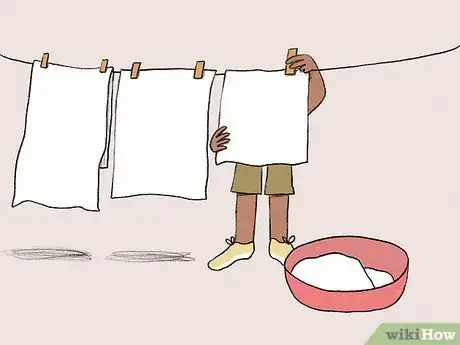
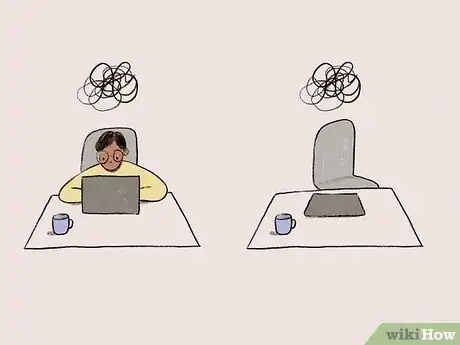
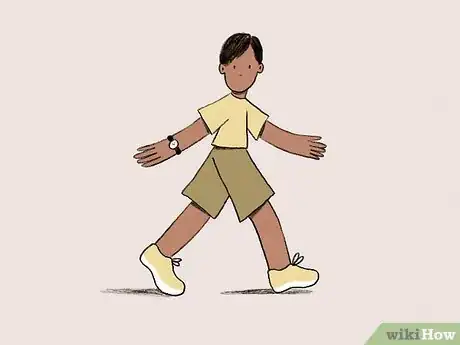
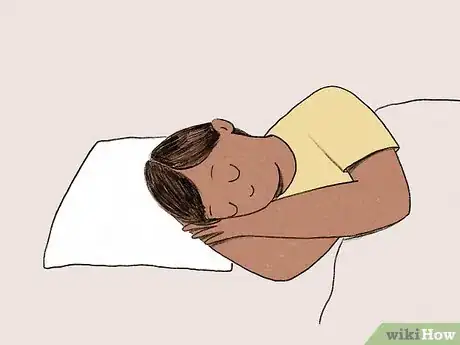
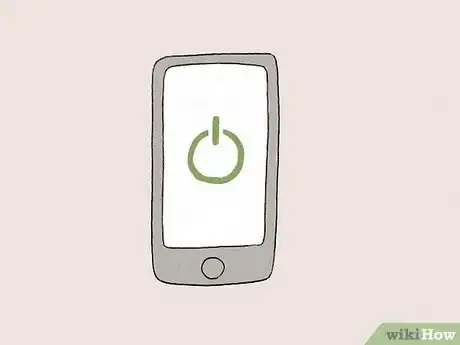

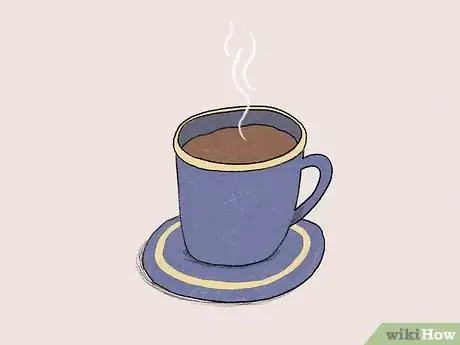




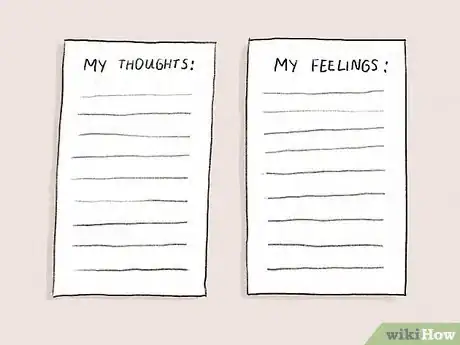
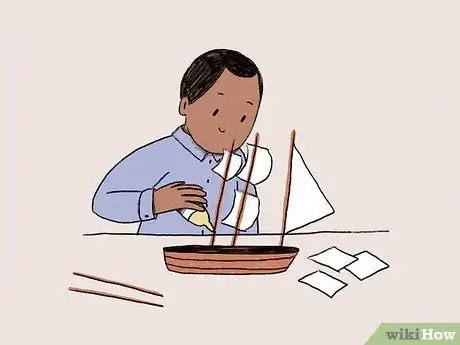
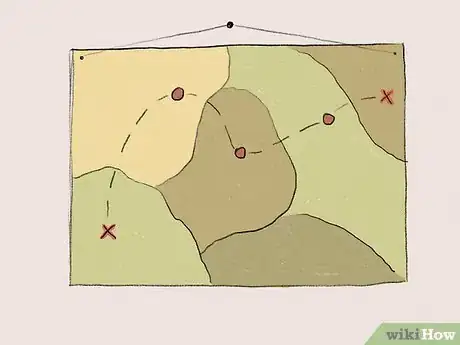
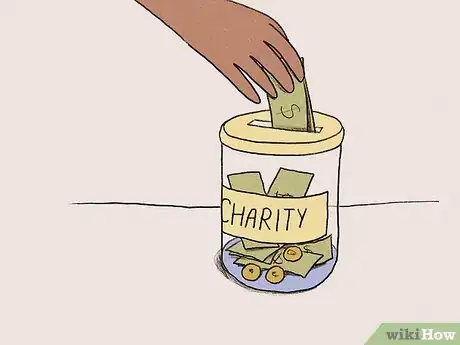
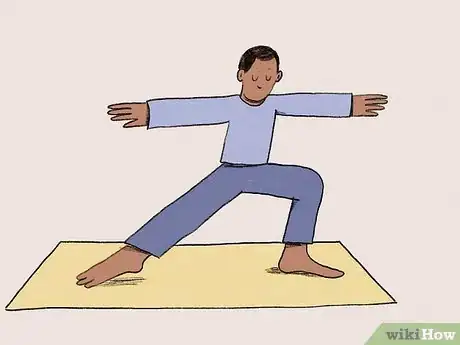

























































Medical Disclaimer
The content of this article is not intended to be a substitute for professional medical advice, examination, diagnosis, or treatment. You should always contact your doctor or other qualified healthcare professional before starting, changing, or stopping any kind of health treatment.
Read More...